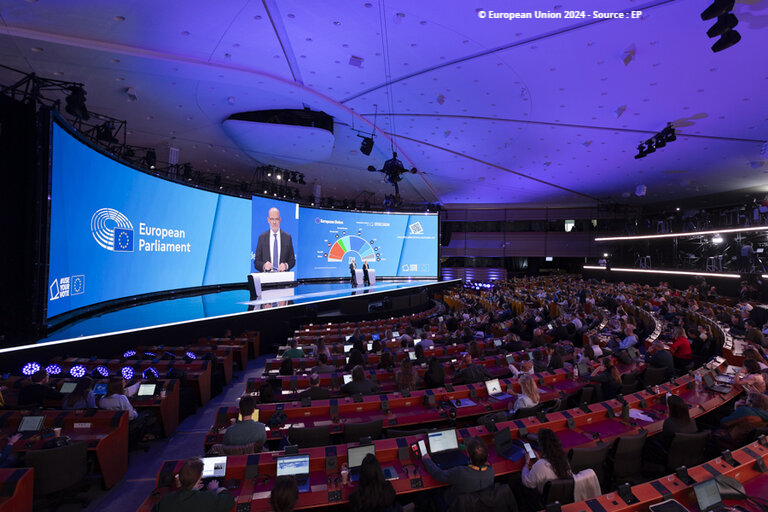
From 6 to 9 June 2024, about 360 million Europeans from the EU’s 27 member states were called to the polls to elect a cohort of 720 members of the European Parliament (MEPs) for the next five years, up from 705 following a reform meant to adapt to the EU’s demographic changes. During the 2019-2024 term, the two main groups of the European Parliament were the European People’s Party (EPP, Christian Democrats) and the Socialist group (S&D) with 176 and 139 seats respectively. While the EPP and S&D groups are set to remain the two major forces in the hemicycle, the elections signal a notable right-wing shift and have once again been characterised by a low voter turnout, estimated at 51% - the highest number recorded in the past twenty years.
According to first estimates, the EPP should now gather 186 members, against 135 for the S&D. The Greens and the centrist Renew Europe, two parties usually favourable to climate policies, both suffered heavy losses, with about 20 seats fewer each than in 2019. On the contrary, the two far-right groups, Identity and Democracy (ID) and the European Conservatives and Reformists (ECR), registered significant gains. However, nearly 100 seats currently belong to non-attached and new members, whose final political family destination could still influence the Parliament’s future balance of power.
The further fragmentation of the European Parliament will undoubtedly make forming alliances and creating majorities more difficult than during the previous term. Lacking an absolute majority, the EPP is not guaranteed a second term for its lead candidate and current EU Commission President Ursula Von der Leyen. Against this backdrop, the legacy of the European Green Deal and its implementation might undergo significant challenges as the new European Parliament is seeing forces that opposed previous climate legislation decidedly strengthened.
Work on energy and research topics is further defined and steered in the European Parliament by the Industry Research and Energy (ITRE) committee. Interestingly, its Chair, Romanian Cristian-Silviu Bușoi, did not seek re-election, nor did the lead rapporteur on the Horizon 2020 research programme Maria da Graça Carvalho, who resigned in early April to become the Portuguese minister for environment and energy. However, both Germany's Christian Ehler (EPP) and Romania's Dan Nica (S&D), other co-rapporteurs on Horizon Europe and prominent supporters of an increased EU research budget, were re-elected.
In the next few weeks, national political parties will form groups, while EU leaders will start discussing the distribution of the EU top jobs, which include the Commission, Parliament, and EU Council Presidencies, as well as the High Representative/Vice President for Foreign Affairs role, following a careful balance of power between countries and political forces. The newly appointed European Parliament will hold the first plenary of the 10th Parliamentary term on 16 July, where MEPs should elect their President.